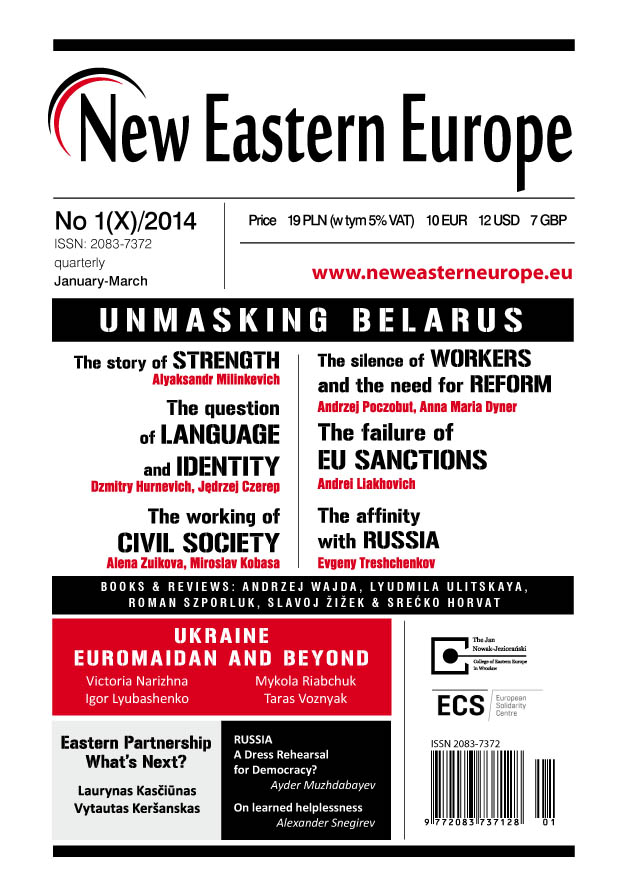1 (X) 2014: Unmasking Belarus
January 17, 2014 -
Adam Reichardt
-
Issue

ISSUE 1(X)/2014: UNMASKING BELARUS
Belarus is a country that is often assigned the label of “Europe’s last dictatorship” – yet it is a country that can also be seen as located in the heart of Europe. The first issue of 2014 for New Eastern Europe takes an in-depth look at the issues that are facing this country. The nation’s complex society and history underline the need for us to better understand Belarus. The issue aims to present, from various viewpoints, insight to the country today including its identity, society, economy, language and its relations with neighbours.
While examining the complexities of the current situation, the authors in this issue don’t question Alyaksandr Lukashenka’s authoritarian rule, but also point to the fact that, as Andrei Liakhovich notes, EU policies poorly address the Belarusian people. Despite the social situation, the Belarusian people are not only entrepreneurial but also pro-European, as intellectual Alyaksandr Milinkevich writes. Journalist Andrzej Poczobut reports on why the workers in Belarus don’t strike while Polish expert Anna Maria Dyner provides an analysis of the Belarusian economy and what membership in the Russian-led Customs Union means for this small country. These and the rest of articles dedicated to Belarus present the country from various viewpoints and allow us to ask ourselves the question as to why we overlook this key nation too often.
Beyond Belarus, Lithuanian analysts Laurynas Kasčiūnas and Vytautas Keršanskas provide an assessment of the 2013 Vilnius Summit of the Eastern Partnership and what challenges lie ahead, while Polish experts Dominik P. Jankowski and Paweł Świeżak argue that “Eastern Europe has become an ‘unwanted child’ for some western countries, one they would prefer to forget about.”
Yet the situation in Ukraine is an indicator that the region’s future remains uncertain. Taras Voznyak and Mykola Riabchuk provide clear examples on Ukrainian society that help us better understand why the protesters came out to the Maidan, while Victoria Narizhna and Igor Lyubashenko discuss the changes that took place since the EuroMaidan protests began and contrast it with the Orange Revolution of 2004.
Click here to see a preview of the issue:
In addition, this issue also includes:
An analysis by Adam Balcer of the role of China and the threat it presents to Russia’s envisioned Eurasian Union
An interview with Ayder Muzhdabayev, deputy chief editor of Moskovsky Komsomolets
A report on Human Trafficking in Romania
A historical discussion on Poland’s inter-war policy in the newly acquired Eastern Galicia
A profile of the Russian city of Perm
A review of Andrzej Wajda’s Wałęsa. Man of Hope
And much, much more.




































